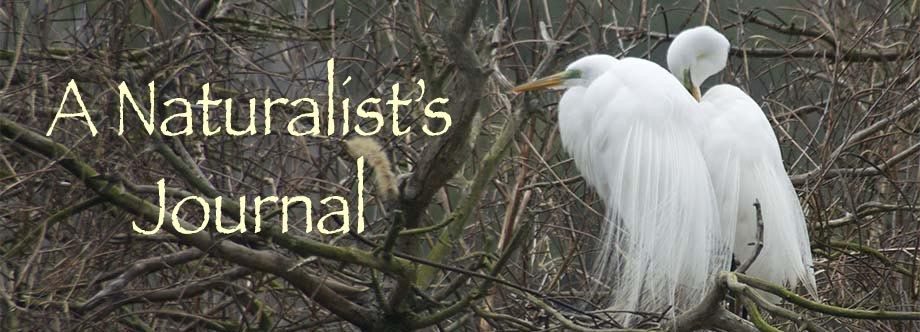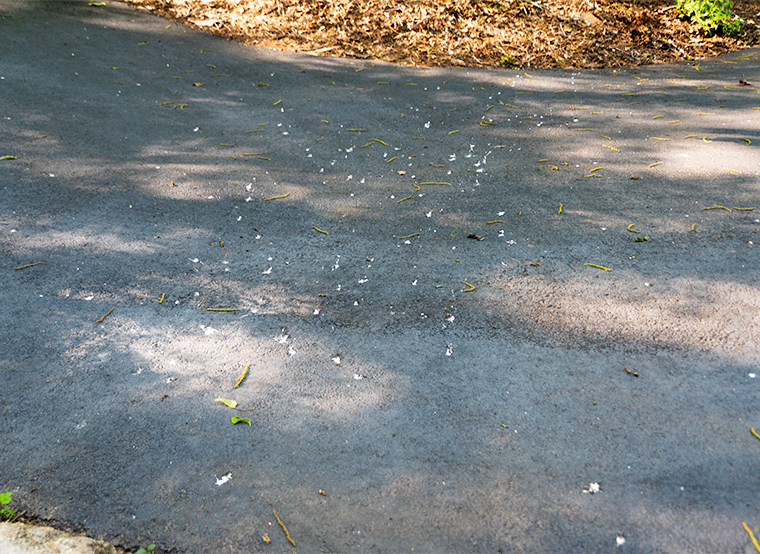
I noticed this interesting pattern on my driveway. I had never seen this pattern of a broad swath of what appeared to be bird poop crossing the driveway.
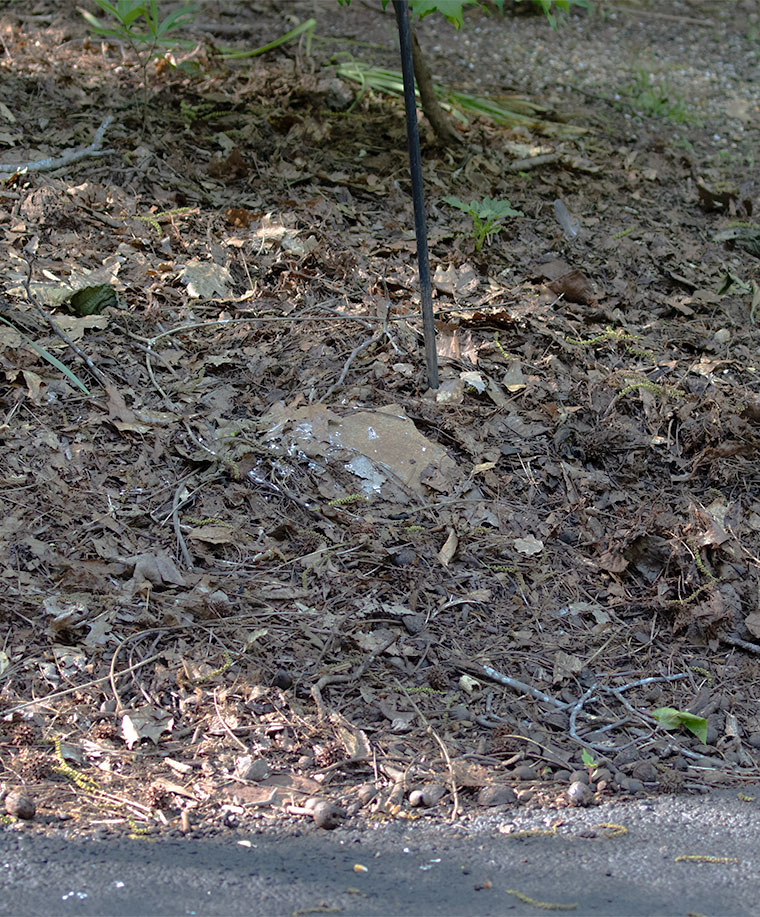
I traced the lines of poop across the driveway and they appeared to lead to a metal pole.
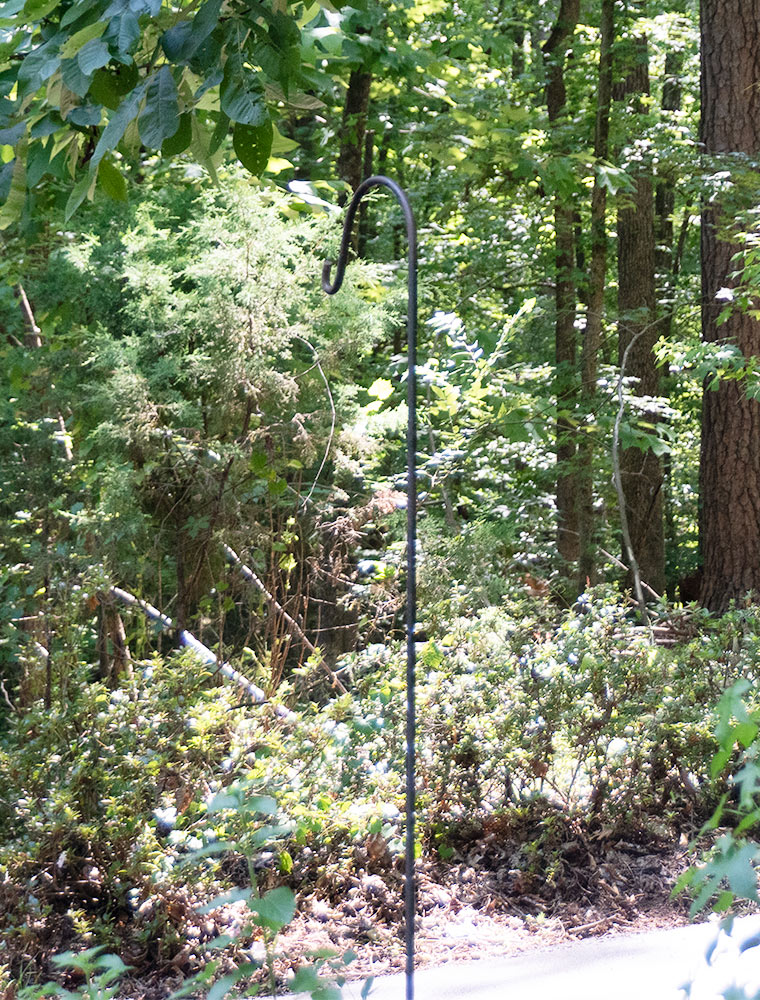
We occasionally use this pole to hang bird feeders or hummingbird feeders.
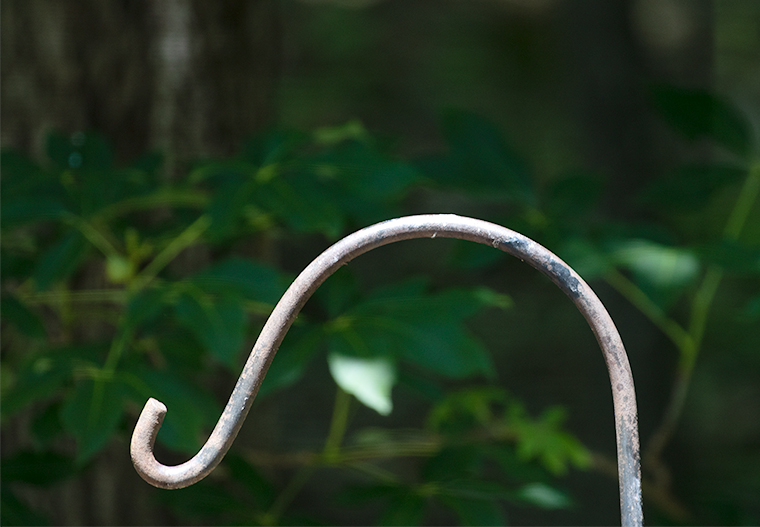
In addition to the hook for hanging stuff, it has a nice curved top which is a convenient perch for birds.
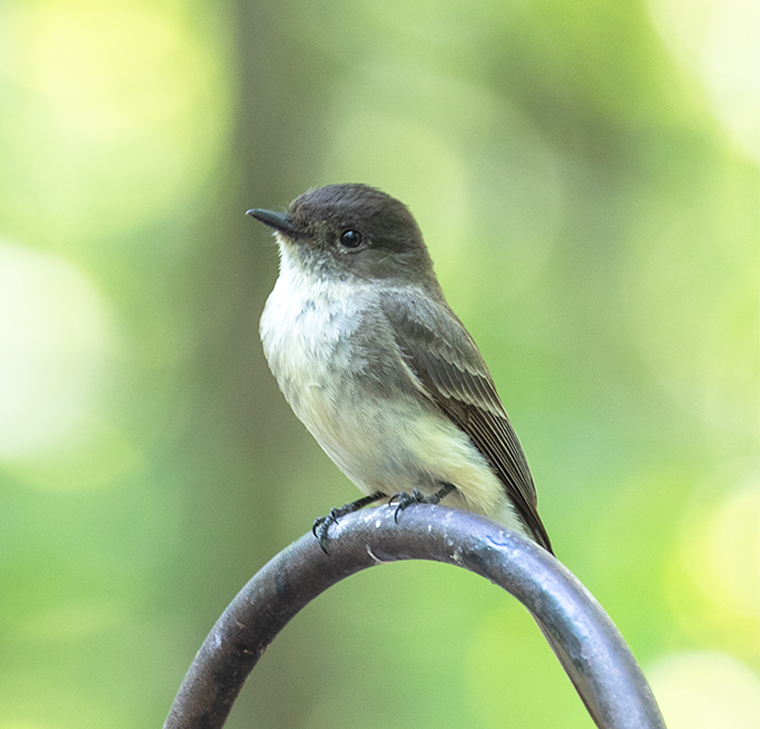
One of the most common inhabitants of this pole are Eastern Phoebes (Sayornis phoebe). I have frequently seen them performing their fly-catching routine from this pole. They perch on the pole watching for insects to fly by. When they spot one, they flutter out to catch it in mid-air. Their fly-catching flights are too irregular however, to leave the straight lines of poop that I saw on the driveway.
Phoebes are very nice little birds to have around. Their common name and species name is derived from their song which sounds like fee-bee, fee-bur-ee. Someone thought this sounded like “Phoebe”, who appears in many mythological settings. In one of the most cited Phoebe is a Titaness and the grandmother of Apollo and Artemis. Sometimes she is listed as the goddess of dawn. The generic name “Sayornis” means Say’s bird. The genus was named after a famous entomologist, Thomas Say.
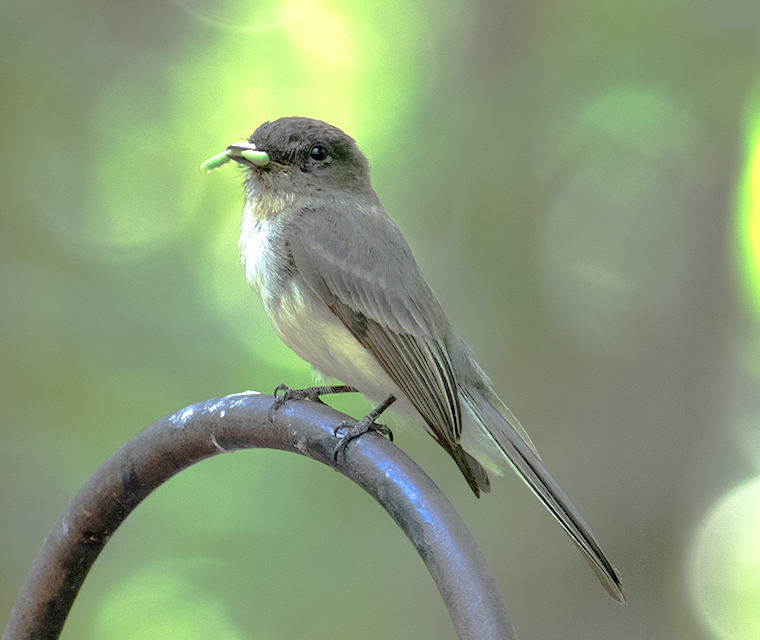
I was watching the phoebes oe day when a clue to the Poop Trail Mystery arrived. This Phoebe was not fly-catching. It had a caterpillar in its beak when it arrived.
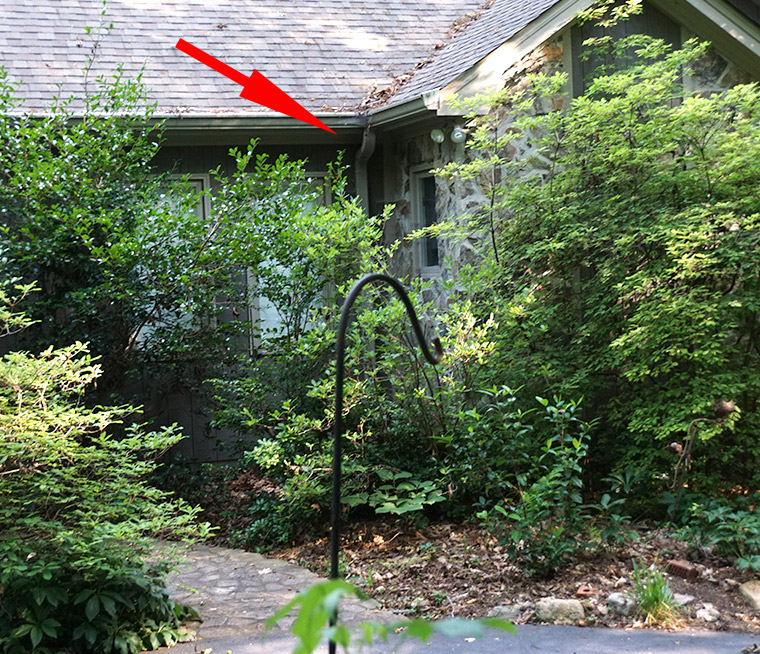
I saw it fly back toward the house. If I then traced the Poop Trail away from the pole and back toward the house, I could see that the trail led toward an interior corner of my house (indicated by the arrow).
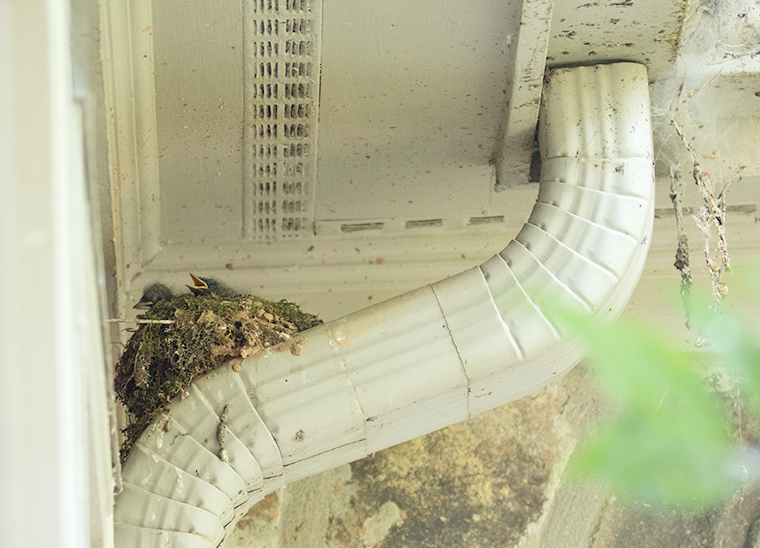
Sure enough the mystery was soon solved. The phoebes had built a nest on the portion of my downspout which curves back under the soffit to the main wall of the house. This is a very protected place, and I remembered that the phoebes had built nests on these structures before on our house.
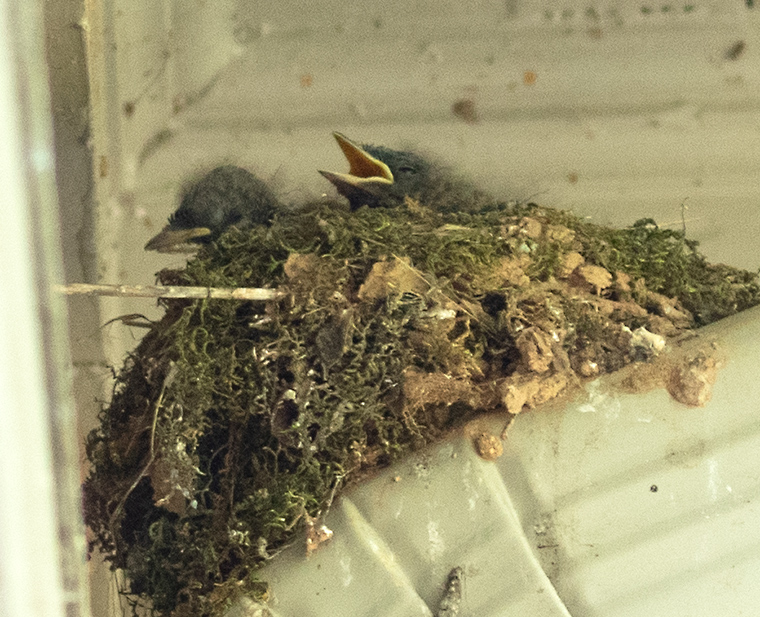
A closer view of the nest revealed two nestlings.
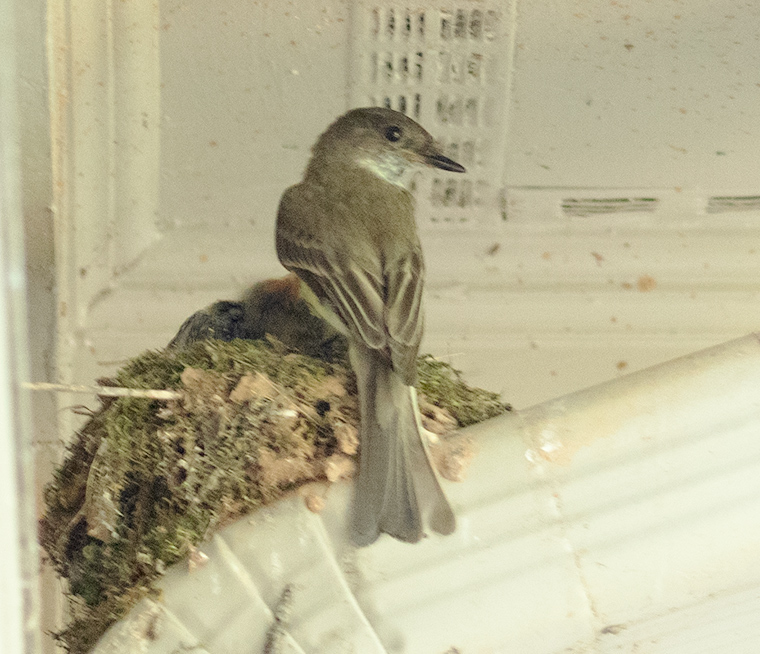
A parent arrived soon enough.
Phoebes, in common with many other birds, carry their nestlings’ poop from the nest and dispose of it outside the nest somewhere. When they are young, Phoebe nestlings normally defecate right after they are fed by a parent. The excreta are packaged in a sack which is convenient for the parent to pick up and carry away to drop somewhere. The poop pattern on my driveway apparently represents nestling fecal sacks dropped by the parents. Why they should fly toward the garden pole to drop the sacks is a mystery. Perhaps they perch there briefly to admire the pattern they are producing on the driveway!
After about 14 days, the nestlings back up to the edge of the nest and defecate over the side. This gets the Phoebes in trouble with humans if the nest is above a porch or sidewalk. Not a problem in our case since droppings from the nest fall on the ground behind a screening of shrubbery. Phoebes are such delightful birds to have around that they are worth putting up with a little mess.
